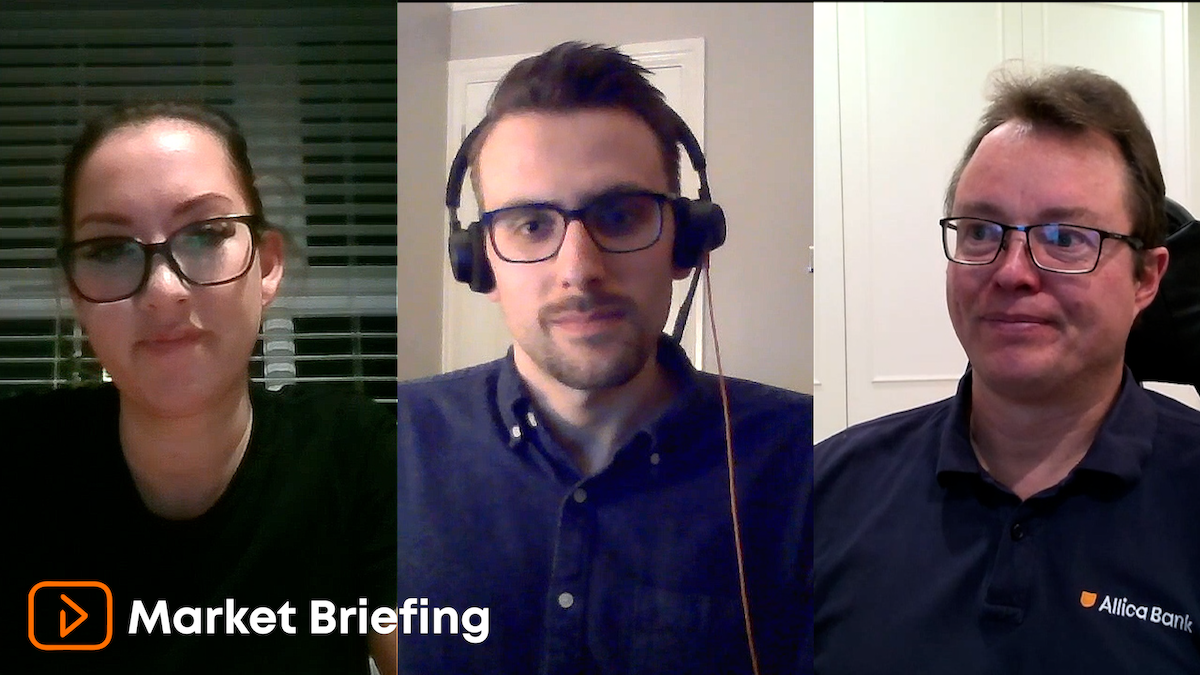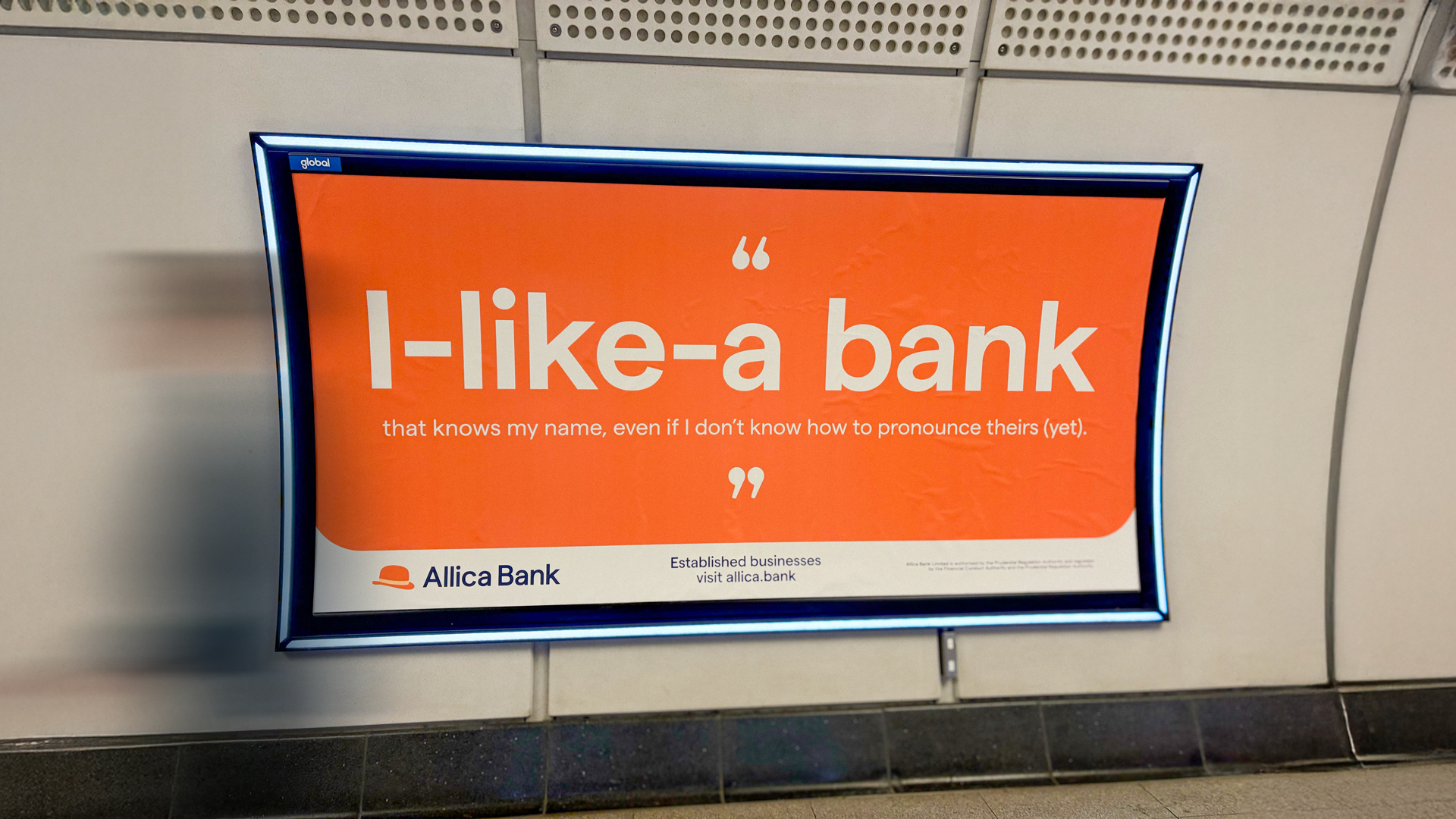Go back 10 or 15 years and most businesses had a point of contact in their bank – a reliable, local partner with expertise and relevant knowledge.
Nowadays, you’re lucky to speak to the same person in a call centre two days in a row. And let’s not talk about the hold music!
It used to be that there was a happy and reciprocal triangle of the business, their bank, and their accountant. With the loss of relationship managers and on-the-ground experts in most banks, that triangle has become lopsided, with a lot of slack expected to be picked up by a business’s accountant.
Relationship managers are central to Allica’s business model because we know how valuable they are to established SMEs and their partners, such as accountants. To explain the value of relationship managers in more detail, we brought some of Allica Bank’s experts together to discuss in the context of the current economic conditions.
Matt West is a Relationship Manager for Allica Bank in the South West, Katie Roberts is one of our Relationship Managers in Yorkshire, and Conrad Ford is Allica Bank’s Chief Product & Strategy Officer.
The SME and bank relationship is unrecognisable to a decade ago
The trio started the conversation by reflecting on the many changes they’ve seen in the last 10 or 15 years.
Conrad – who is something of a fintech veteran – remarked that “most businesses, regardless of their size, would have had a relationship manager. Somebody who understood their business at a local level. Even if you had a turnover of £50k, you’d have a relationship manager that would have worked alongside you and your accountant. These days, with that same bank, if you have a turnover of £5,000,000, you no longer have a relationship manager.”
Sadly, the digital revolution in banking has contributed to a significant and unrelenting removal of branches and relationship managers.
“We’ve been through a degradation, not evolution, of banking services for businesses.”
But why has it happened? Conrad has plenty of insight to share. “Established SMEs are valuable customers to banks,” he said, but “the big high street banks make most of their money from two polar opposite segments: consumer banking (plentiful and with relatively simple product needs) and large corporates (scarce and, as such, the primary focus for their expert resources).”
Established SMEs – that is, businesses that employ somewhere between 10-100 staff – are stuck in the forgotten middle. They are complex in their structure, compliance, and lending needs, but not as valuable to high street banks as corporate giants.
Big banks can’t make the economics work for established SME clients, so they’ve simply stopped trying.
What are established SMEs and their accountants missing without a relationship manager?
When Katie got started in banking, she was a relationship manager in a local branch. “Back in the day” she explained, “you’d have a triangle of support – the client, the relationship manager, and the accountant.” Established SMEs now have to rely on their accountants for all sorts of financial advice that they never would have done before, while banks have fallen by the wayside.
One of Katie’s points of pride in being a relationship manager is the range of support she can provide business owners. “Whether it’s in buying business premises, growth, importing or exporting, or retirement plans. Sometimes, it’s not about what I do but who I can connect them with in the community.”
The trio were in total agreement, with Matt adding that “a fundamental part of our job is to join the dots and add real value to businesses.”
“It’s not just about finance,” Katie noted, “it’s a cradle to grave experience of getting them to where they want to be and every little bit in between.”
With his perspective as Allica Bank’s Chief Product and Strategy Officer, Conrad was able to share the bigger picture view of what established SMEs are looking for. “What we really hear when we talk to SMEs is that they want somebody who’s going to take the time to understand their business.”
And it’s that understanding that can make all the difference. In banking, personal relationships and client knowledge can be the deciding factor between growth and stagnation.
For example, big banks might run an algorithm that has identified a particular sector is struggling and enact a blanket no-lending policy to that sector. This is despite the fact we know that sectors are not homogenous and that businesses can do well in spite of wider conditions.
As an accountant, you might know some specifics about your client’s financial position and their position in their market that, together, make a compelling argument as to why they’re worth lending to. Without human expertise on both sides of the conversation, though, it’s impossible to capture the nuances of each individual business. In this case, automation ends up hampering growth.
“Having an understanding of your client and their business is really powerful in the best of times,” Matt summarised, “let alone the situation we’re currently in and the pressures established SMEs are facing.”
At their best, relationship managers are a partner to a business owner – just like accountants – and can help maximise opportunities and minimise risks.
Relationship managers complement accountants and create better outcomes
Speaking of accountants, there’s no denying that they’ve had to take on more responsibilities in the last decade, often for very little in return. As big banks cut relationship managers, the onus has shifted onto accountants to guide and support businesses with an even wider range of financial matters – even around borrowing and financing.
The group all report similar stories of accountants’ concerns with this development. “When accountants approach commercial banks,” Conrad shared, “it’s not that they get a “no” in response, it’s that they struggle to get an answer at all. You hear extraordinary stories about some having to wait months for an answer.”
“They’ve really stepped up to the plate” but that doesn’t mean they should have had to. “The picture is quite bleak for the SME community and the need for that advice, support, and expert knowledge – particularly in terms of working capital finance – is really acute.” It’s not that accountants can’t offer such support, but that banks should be stepping up to add deeper expertise so that accountants can focus on helping clients with their own subject knowledge.
Having a relationship manager isn’t a free pass or a back door to get whatever you want, Katie stressed. Instead, it means you have an expert you can rely on to “be there, be trusted, and be sure you’ll get a response from” – something that is invaluable to established SMES and their accountants.
“Even when we do say no, clients come back in the future with alternatives. They come back because they appreciate the honesty and transparency we operate with. And where I have said no, I keep in touch and see where they’re at in the future.”
“A proactive call from a relationship manager is a game-changer.”
Allica Bank’s vision for relationship managers, accountants, and established SMEs
“There is a desperate need for a challenger bank for established SMEs,” Conrad argues. These are the businesses on industrial estates and high streets in every single town across the country – they represent about ⅓ of the economy, but get no airtime with high street banks.
“Big banks struggle with established SMEs because they’re a bit complicated and not as high-value as the big businesses. They find them quite awkward.”
“If you’re a business owner or an accountant in the forgotten middle, you feel that the bank wishes you were either much bigger or much smaller.”
“We believe there’s a desperate need for a focused challenger that cares about the established SME segment and is really optimised for it,” Conrad continued. “We’re trying to build a real alternative to the high street banks – we’re building a full service bank, not just lending products, and building things that established SMEs want.”
The conversation came to a close as the group reflected on the values and tenets that are making Allica Bank so popular among established SMEs and their accountants:
- We are unashamedly a relationship bank.
- We are the bank that tries to say yes, rather than finding excuses to say no.
- We reward established SMEs; big banks punish them with fees and charges.
- We use technology that works and is built for purpose to make it easy for customers to approach us.





